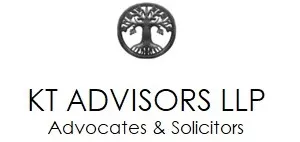

KT Advisors is a boutique corporate & commercial law firm. The Firm is recognized for professionalism and commercial acumen that it brings to the complex commercial transactions with a strong focus on ethics. The Firm has advised numerous international and domestic clients in M&A, strategic and investment transactions across sectors.
Founders' disputes remain particularly commonplace in India as founders commence business on ‘handshakes' and ‘honour-codes'.
India Corporate/Commercial Law

Founders' disputes remain particularly commonplace in India as founders commence business on 'handshakes' and 'honour-codes'. Despite data indicating that significant number of startups fail due to misalignment among founders 1 , early founders starting businesses with standard articles of association remains the convention. In the absence of a negotiated founders' agreement or shareholders agreement, a minority founder's interest or the company's interests can be particularly affected. Besides setting out roles and responsibilities of the co-founders, the proportion of each founder's shareholding, board nomination rights and share transfer restrictions, a founders' agreement also protects the founders' 'parental rights' in the company.
This article seeks to be a founders' guide to avoid bad breakups and ugly fallouts.
The minimum time threshold ("cliff"), post which the co-founder gets vested with the first tranche of his entitled shares, typically starts from an identified date in the future. This approach, however, may not bode well for the co-founders who have invested manhours for the take-off of the company pre-incorporation or company's initial stages. Seeking retroactive vesting in such cases may be reasonable.
Founders may also want to link the vesting schedule to achievement of targeted milestones, although, this is not typical as the company achieving milestones is not usually contingent on a single individual. From the company's perspective, a milestone contingent vesting schedule may incentivise the co-founder to contribute more towards the company.
Practically, vesting of stake also becomes an ask from early-stage investors at the time of fund-raise. A previously agreed vesting schedule between co-founders helps set a benchmark and often avoids renegotiation at the behest of an incoming investor.
With a single tiered acceleration provision, the vesting would typically occur on either (i) any change in control or substantial sale of assets and/or goodwill of the company, or (ii) if the founder's engagement / employment is terminated by the company without 'cause' (dealt subsequently).
However, in a typical double trigger event, the successive occurrence of a change of control followed by a related termination of the co-founder's employment without 'cause' would trigger the accelerated vesting. A double-trigger acceleration is an investor friendly approach as it works to retain founders even post the change of control until termination of their employment.
If a founder is likely to exit, a ROFO would be typically preferrable. The discount on lack of marketability of shares (discount on the value of shares due to share transfer restrictions) on account of ROFR is also seen to be higher than ROFO. Separately, the founders may seek certain transfers which are permitted upon occurrence of identified events (revenue or profitability targets) and agree to not concede to a blanket share transfer restriction.
In addition, to a ROFR / ROFO, a co-founder may also seek a tag along provision to allow for co-sale of their shares in the event a majority founder intends to sell their stake to a third party.
Reserved matters or matters subject to affirmative voting rights are often heavily negotiated. The extent of these rights is contingent on each founder's bargaining power and shareholding. Absence of board control or a minority shareholding coupled with absence of reserved matters could translate to a founder being diluted significantly or being similarly prejudiced.
In a company with multiple founders – to avoid a single founder holding decision making hostage, an approach of obtaining majority of the founders' approval can also be considered. For instance, when a company has 5 co-founders with similar shareholdings, the reserved matter item would be deemed approved if 3 out of 5 co-founders indicate their assent.
As a counter-push, to ensure that the company's business decisions are not dependent on a minority founder's approval, the company may seek such rights falling away if the founder's shareholding in the company falls below a particular threshold or if the founder's employment ceases.
A 'good leaver' may seek an accelerated vesting of his shares to reap the rewards of the seeds sowed by him in the company. A 'bad leaver', on the other hand, may be pushed to sell his shares back to the company or to the other shareholders at an identified discounted price or even face value. Company and founders enforcing bad leaver claw back provisions should factor in enforceability challenges and potential risks of National Company Law Tribunal granting injunctive relief (particularly on prohibiting funder dilution or clawback – which could affect future fund raises) if the belligerent founder holds more than 10% of the Company.
What exactly constitutes 'cause' is heavily negotiated. While inclusion of acts of wilful misconduct, gross negligence or fraudulent conduct are market, the company / investors may seek a wider all-encompassing 'cause' clause, including acts of moral turpitude, failure to meet key performance indicators, acts or omissions which may adversely affect the company's reputation, material breaches, etc. From the founder's perspective, it would be ideal to restrict the ambit of the cause clause by including carve-outs and making the trigger events subject to objective tests as opposed to subjective wording.
For example, 'fraud' is a standard ask for termination clauses for 'cause'. While seemingly innocuous and fair, unless defined specifically, 'fraud' may have many meanings and context. From the founder's perspective, the trigger could be fraud as reported by the company's statutory auditors, or a chargesheet filed in court or determination by a court of competent jurisdiction', as opposed to termination on a mere allegation without the offence of fraud being sufficiently established. Needless to add, companies / investors resist a standard of conclusive determination by Indian courts given the typical timelines of adjudication involving appellate and constitutional courts. While largely driven by bargaining powers, a well-placed founder could push for determination by a court of jurisdiction in the first instance – allowing for judicial application of mind before punitive measures kick-in.
It is not uncommon for disgruntled founders to benefit from the absence of a negotiated founders' agreement. The absence of a founders' agreement (including provisions around vesting, clawback) often allows initial shareholders, who were expected (but not documented) to be engaged / employed full time during the early stages, to continue retaining their shareholding and benefiting from the upside of Company's growth without being part of the operations. Similarly, the lack of a robust founders' agreement particularly in relation to the constructs of a good leaver – bad leaver clause may also allow for disgruntled founder to retain their shareholding while potentially blocking future fund raises, corporate resolutions, etc. and leveraging this to negotiate exits at a premium. The absence of a well drafted founders' agreement also potentially heightens risks of a rogue founder seeking injunctive relief alleging oppression and mismanagement and blocking the company's overall growth. Despite management time and costs, the benefits of negotiating a founders' agreement at the get-go, outweigh the cons as the absence of a founders' agreement often ends up causing significant harm to the company and its founders in cases of a dispute.
The content of this article is intended to provide a general guide to the subject matter. Specialist advice should be sought about your specific circumstances.
Footnotes
2 Right of first offer requires the selling shareholder to offer the interest to the other right holders before offering to sell to third parties. If the ROFO right holders choose to not exercise such right, the selling shareholder is free to sell to a third party on terms no more favourable than those offered to the ROFO right holders.
3The right of first refusal is similar to the right of first offer, except that the selling owner already has a bona fide third party offer before offering it to the ROFR right holders. The right holders may elect to buy the sale shares on the same or better terms than those offered to the third-party buyer. Only after refusal by the ROFR right holders to exercise such right, can the selling shareholder sell to the bona fide third-party buyer.
The content of this article is intended to provide a general guide to the subject matter. Specialist advice should be sought about your specific circumstances.